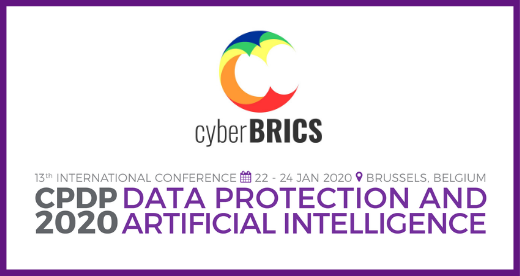Data Protection Regulations in the BRICS
On 23 January, at 16:00 Brussels time, the CyberBRICS project will organize the session Data Protection Regulations in the BRICS, at the Computer Privacy and Data Protection (CPDP) conference.
The session will offer the occasion to release the BRICS Data Protection Map, together with pre-book-launch brochure of CyberBRICS: Mapping Cybersecurity Frameworks in the BRICS.
Session description
Even if data protection legal frameworks are quickly spreading, (at least 130 countries have a general legislation already enacted on that matter) and some principles and instruments seem likely to become international standards, their implementation has peculiarities and flavours that shall be taken into account. In BRICS countries, the very implementation of data protection legal frameworks followed very specific dynamics. In some countries, this process is not yet completed, in others, it has very distinctive characteristics, and in general, both dimensions deserve particular interest.
Considering the prominent nature of the regulators in this field (the DPA, or Data Protection Authority) and its centrality to the enforcement of the legislation and to international harmonisation, the panel will have a particular focus on Data Protection Regulators in the BRICS. Besides presenting the domestic data protection regulations, panellists will focus on the structure, characteristics and experiences of the DPAs or other enforcement mechanisms in BRICs countries, looking forward to identify and emphasise their nature and foster knowledge on their work.
Moderator
Danilo Doneda, Digital Ethics Institute and Member of the new Brazilian Data Protection Agency, BR
Speakers
- Luca Belli, Professor at FGV-Rio Law School, BR
- Sizwe Snail, Commissioner at Information Regulator of South Africa, SA
- Andrey Shcherbovich, Professor at Higher School of Economics, Moscow, RU
- Bruno Gencarelli, European Commission, Head of International Data Flows Unit at European Commission, INT
- Anja Kovacs, Internet Democracy Project and CyberBRICS fellow India

